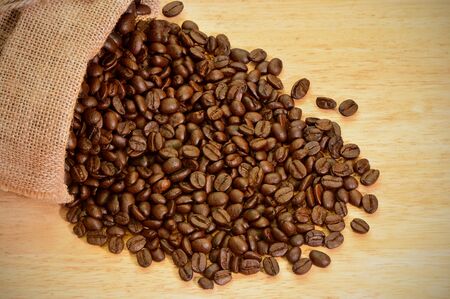Introduction: The British Cuppa Meets Sustainability
There’s something quietly poetic about the morning ritual of brewing a cup of coffee in Britain—a gentle clatter of mugs, the familiar aroma drifting through terraced streets, and perhaps the hum of a radio in the background. Yet, beneath this time-honoured tradition, a wave of change is stirring. In recent years, the UK’s passionate affair with coffee has met its match in another national obsession: sustainability. As Britons become ever more discerning about what goes into their cup, they’re also casting a critical eye over what wraps around it. Eco-friendly packaging is no longer just a buzzword; it’s becoming as essential as the roast itself. The question echoing through independent cafés in Brighton to bustling city chains in Manchester is clear: How can British brands honour both their commitment to great coffee and their responsibility to the planet? Driven by an ethos that values both heritage and innovation, UK consumers are demanding more from their beloved brews—less plastic, less waste, and packaging that treads lightly on the earth. This evolving relationship between coffee culture and environmental consciousness is propelling British brands to the forefront of green packaging solutions, setting the stage for a new era where every sip supports a greener tomorrow.
Biodegradable Packaging Materials: An Overview
When it comes to sustainable coffee packaging, British brands are increasingly searching for solutions that marry eco-credentials with practical performance. Let’s take a stroll through the most popular biodegradable materials currently shaping the UK coffee scene—each with its own quirks and strengths.
PLA (Polylactic Acid): The Plant-Based Pioneer
PLA is a bioplastic derived from renewable resources like corn starch or sugarcane. It looks and feels much like traditional plastics but boasts an impressive ability to break down under industrial composting conditions. In the context of the UK, PLA is readily available through several domestic suppliers, though local composting infrastructure can be patchy—something worth bearing in mind for brands keen on cradle-to-cradle circularity.
Key Features of PLA:
- Sourced from plants, not petroleum
- Clear and glossy appearance, ideal for windowed pouches
- Compostable in industrial facilities (not home compost bins)
- Moisture barrier properties suitable for coffee freshness
Compostable Films: Flexible Yet Functional
Compostable films are typically made from a blend of renewable materials such as cellulose or starch-based polymers. They’re prized for their versatility—wrapping everything from whole beans to single-serve sachets. British suppliers have caught up quickly, now offering films certified to EN 13432 or OK Compost standards, which gives peace of mind to both brands and eco-conscious customers.
Main Benefits:
- Excellent sealability and printability for branding
- Break down in commercial compost environments within months
- Available as transparent or semi-transparent options
Plant-Based Papers: The Classic with a Twist
Papers made from FSC-certified or recycled fibres remain a stalwart choice for UK roasters seeking rustic charm with environmental substance. Many are now lined with thin layers of bioplastics or waxes to help block moisture while remaining fully biodegradable. Sourcing locally is easier than ever, thanks to a growing network of British paper mills prioritising sustainability.
Why Choose Plant-Based Papers?
- Naturally biodegradable and often home-compostable
- Tactile feel and vintage appeal
- Customisable with soy inks and water-based adhesives
- Widely accepted in paper recycling streams across Britain
A Quick Comparison of Biodegradable Coffee Packaging Materials in the UK:
| Material Type | Main Feature | UK Availability | End-of-Life Option |
|---|---|---|---|
| PLA (Polylactic Acid) | Glossy, plant-based plastic lookalike | High (industrial supply chains) | Industrial composting only |
| Compostable Films | Flexible, food-safe wraps & sachets | Moderate (growing network) | Commercial composting (EN 13432/OK Compost certified) |
| Plant-Based Papers | Naturally rustic, tactile finish | High (local mills available) | Home composting/recycling possible |
The variety and accessibility of biodegradable materials in Britain have never been better, but each option comes with its own considerations around end-of-life pathways and consumer education. For British coffee brands determined to tread lightly on the planet, understanding these nuances is key to making packaging choices that resonate from roastery to high street café.

3. Sourcing Sustainably on British Soil
When it comes to the backbone of biodegradable coffee packaging, the UK’s homegrown approach is something of a quiet revolution—rooted in both innovation and an old-fashioned sense of community. British brands are turning their gaze inwards, seeking local suppliers who can deliver not just eco-credentials but also traceability from field to finished pack. While global supply chains can muddy the waters, working with UK-based producers brings a level of transparency that resonates with both businesses and their customers.
Local Suppliers: The Heartbeat of Sustainable Packaging
In cities from Bristol to Glasgow, independent material innovators are experimenting with everything from seaweed bioplastics to compostable papers crafted from agricultural byproducts. These local suppliers aren’t just ticking boxes—they’re collaborating closely with roasters and cafés, ensuring every stage of the packaging process supports British jobs and reduces transport emissions. By choosing nearby partners, brands cut down on carbon footprints and foster a network of sustainability champions right here at home.
Homegrown Innovations: Rethinking What’s Possible
The UK’s spirit of invention shines through in the rise of alternative materials. Think cellulose films made from Scottish wood pulp or plant-based linings sourced from English farms. Even start-ups in Manchester and Brighton are launching pilot projects that turn food waste into packaging gold. This wave of innovation isn’t just about materials—it’s about creating a uniquely British identity for sustainable coffee culture, one compostable bag at a time.
Traceability & Community Impact: More Than Just Packaging
For British coffee brands, knowing your packaging’s journey is as vital as tracing your beans. Transparent sourcing means customers can trust that their morning brew is wrapped in something as ethically sound as the coffee itself. And there’s a ripple effect—local sourcing keeps money circulating within communities, supports small-scale producers, and inspires urban regeneration projects tied to green manufacturing. All told, sourcing sustainably on British soil is more than good PR; it’s a way for brands to weave themselves into the fabric of their own neighbourhoods while setting an example for conscious consumption nationwide.
4. Performance Under Pressure: Testing Biodegradable Options
If there’s anything as unpredictable as a British bank holiday, it’s the weather—and when it comes to coffee packaging, materials need to stand up not only to the drizzle of a morning commute but also the odd burst of sunshine during an impromptu picnic on Hampstead Heath. British brands require more than just eco-credibility; they need real-world resilience.
Moisture Resistance: Battling the British Elements
From relentless rain in Manchester to the damp mist rolling off the Thames, moisture resistance is non-negotiable. Biodegradable films and papers often falter here, risking soggy labels or worse, compromised freshness. PLA-lined paper fares better on this front, while compostable plastics like PBAT offer a hydrophobic shield—though sometimes at the expense of full biodegradability in home composting bins.
Shelf Life: Keeping Coffee Fresh from Roastery to Kitchen
The journey from specialty roasteries in East London to suburban supermarkets is fraught with logistical demands. Oxygen and UV barriers are essential to preserve those nuanced flavour notes Britons have come to expect. Here’s how some popular biodegradable options stack up:
| Material | Moisture Resistance | Shelf Life | Home Compostable? |
|---|---|---|---|
| PLA-lined Paper | Moderate | 2-3 Months | No |
| Kraft + Plant-Based Film | Good | 3-6 Months | Varies |
| PBAT/PLA Composite | Excellent | Up to 6 Months | Industrial Only |
| Pure Cellulose Film | Poor | <1 Month | Yes |
The ‘Bin Test’: How Packaging Performs Post-Cuppa
Perhaps most telling for British consumers is what happens after the last cup has been brewed. Will that bag break down in a council-provided food waste caddy? Or will it languish forlornly in landfill? The ‘bin test’ isn’t just about ticking boxes for sustainability reports—it’s about tangible action at the kerbside, where compostable claims meet everyday routine.
Navigating this landscape means weighing trade-offs: shelf life versus compostability, barrier properties versus breakdown time. For British brands hoping to tick all boxes—from eco-conscious urbanites cycling through Soho to families picnicking in Hyde Park—the best packaging solution is one that’s robust yet responsible, keeping beans bold until the very last brew and disappearing gracefully once its work is done.
5. Consumer Attitudes and Regulatory Realities
The British love affair with a good brew stretches beyond the cup, spilling over into what wraps, holds, or cradles that daily coffee ritual. In recent years, sustainability has become more than a buzzword—its a badge of honour among UK consumers. From London’s bustling flat white aficionados to rural Yorkshire’s afternoon pick-me-up crowd, theres a growing expectation that brands align with eco-friendly values. This cultural shift is not just about optics; it’s actively shaping purchasing decisions and cultivating a new kind of brand loyalty. Shoppers are increasingly scrutinising packaging for claims like “biodegradable,” “compostable,” or “plastic-free,” rewarding brands that back up their green promises with real action.
British Values: Sustainability as the New Standard
There’s a distinctly British flavour to this sustainable mindset—a blend of pragmatism and principle. The public appetite for reducing waste and supporting circular economies is palpable in both urban high streets and local markets. With heightened awareness fuelled by documentaries and grassroots campaigns, consumers now expect brands to minimise environmental harm at every stage, from bean to bin. For many, choosing a biodegradable coffee bag is as much about personal identity as it is about product quality; it signals participation in something bigger—a quiet revolution brewed over countless cups.
UK Regulations: Raising the Bar on Packaging
The regulatory landscape is evolving just as swiftly. The government’s single-use plastics ban, which came into effect across England in 2023, has sent clear ripples through the industry. Coffee brands can no longer rely on conventional plastic packaging if they wish to avoid penalties or negative press. Compostability standards are now part of the mainstream conversation, with guidelines specifying what qualifies as genuinely compostable versus merely biodegradable. The UK also supports the European EN 13432 standard, ensuring that certified materials break down within industrial composting facilities without leaving toxic residues. Local councils may differ in their collection schemes, but the underlying message is unmistakable: coffee packaging must be part of the solution, not the problem.
Navigating New Expectations
For British coffee brands, responding to these shifting sands means more than ticking regulatory boxes—it requires genuine engagement with consumer values and legislative requirements alike. Those who succeed will be those who understand that sustainability isn’t just an add-on but an essential ingredient in every cup served and every package opened.
6. Conclusion: Finding What Works Best for British Brands
As we’ve wandered through the landscape of biodegradable coffee packaging, it’s clear that there’s no single path paved with green gold—rather, it’s a tapestry woven from material science, brand ethos, and the nuanced preferences of British consumers. From compostable films to paper-based wonders and plant-derived bioplastics, each solution offers its own blend of promise and pitfalls. Yet, for brands rooted in Britain’s vibrant café culture—from indie roasters in Shoreditch to heritage brands in Edinburgh—the sweet spot lies in packaging that is both genuinely sustainable and aligned with the nation’s penchant for quality, convenience, and a dash of quiet sophistication.
For British brands, the most promising approach is a considered mix: materials sourced responsibly (think FSC-certified paper or home-compostable biopolymers), coupled with clear communication about disposal and end-of-life impacts. It’s about more than ticking eco-boxes; it’s about crafting an experience that lets coffee drinkers savour their daily ritual without a side order of guilt. As cities from Bristol to Manchester step up their recycling infrastructure and local councils embrace curbside composting, there’s real momentum for change—but only if packaging choices are practical as well as planet-friendly.
This is a gentle nudge to all the UK’s coffee purveyors: now is the moment to brew up something different. Let your packaging reflect not just your brand values but also the shared responsibility we hold for our streets, our parks, and our future. In a land where the simple pleasure of a morning cup can still stop us in our tracks amid city rush or coastal calm, choosing better packaging is more than good business—it’s a small act of everyday stewardship. So why not make your next bag or cup part of Britain’s sustainable story?


